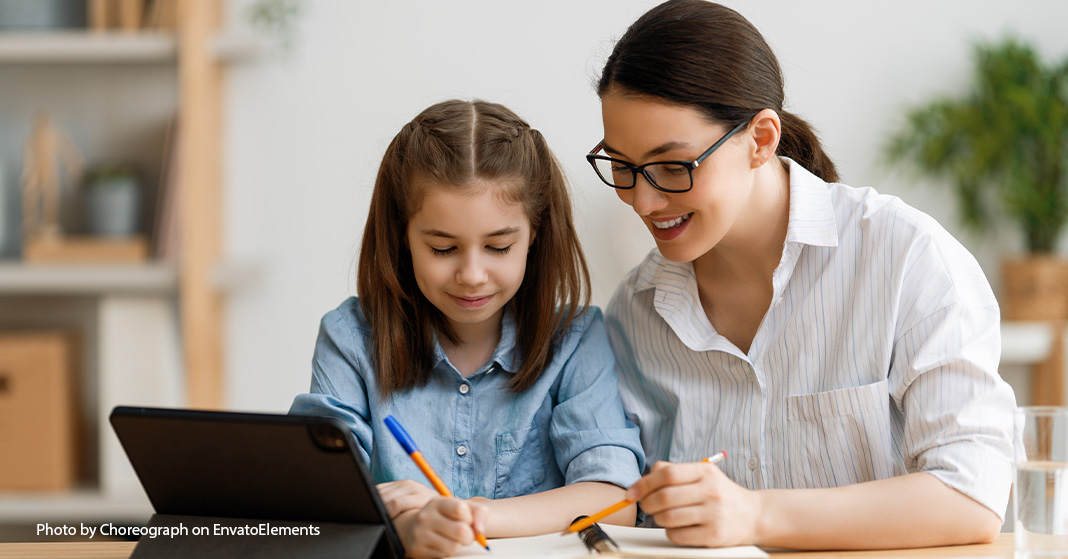
On March 16, 2020, both public and private schools in my state were suspended due to the COVID-19 pandemic. No longer would the yellow school buses rumble down my street. No longer would I have to dodge school car-lines on my way to an appointment. When my fifth-grade daughter heard the news, her reaction was jubilant: “Now every kid in the state is a homeschooler!” Not exactly. Every child in my state was now being schooled at home. But there are big differences between being schooled at home and being homeschooled. Many are calling the new situation “crisis schooling”—parents simply trying to continue their child’s education during a time of crisis. Most families probably have no long-term plans to continue educating their children this way.
But perhaps you know a family who is—or was—considering homeschooling their children and is now uncertain what homeschooling is all about. Now is the time to share the homeschooling vision with them. Here are some specific things that you may want them to know about the difference between homeschooling and crisis schooling.
Homeschool parents are in charge of their curriculum.
In a crisis schooling situation, the parents are not really in charge of their child’s education. The school is. The school decides what work students complete. It chooses the curriculum. The parents are facilitators.
If the child is enrolled in a public school (or any of the free online public school options), the situation is even worse. The government is in charge. And the curriculum it chooses is not “religiously neutral”—it is often at war with God’s law. This curriculum teaches the children of our nation that God is not Creator, that there is no absolute truth, and that there are no moral absolutes.
One of the great blessings of homeschooling is the fact that I, as the parent, get to be in charge. I get to choose my child’s curriculum. One of the main reasons that my husband and I have continued to use BJU Press Homeschool curriculum is that their curriculum aligns with our values. Every single textbook gives me the tools to shape my child’s worldview according to the Bible.
As a homeschool parent, I also have the freedom to make adjustments to my curriculum to meet the needs of my family and the learning needs of my individual children. We can go at our own pace. We can add or omit assignments. Homeschool parents are not the slaves of the curriculum we choose. We are the masters of it.
Homeschool parents are in charge of their schedule.
Not only do I get to be in charge of my curriculum, but I also get to be in charge of my schedule. Of course I have to meet the attendance requirements of my state, but no one dictates a start date or an end date for me. I can choose to follow a traditional school-year schedule or homeschool year-round. My children can do their lessons in the morning or wait until later in the day. I can even take a two-hour break for music lessons in the middle of the afternoon. The flexibility of homeschooling is wonderful.
Homeschool parents are in charge of their children’s socialization.
One of my crisis-schooling neighbors told me the other day that I was lucky that I was a homeschooler before the COVID-19 crisis. “Not much has changed for you,” he commented.
He was wrong. It’s not normal for me to go weeks on a single tank of gas. I, like most homeschoolers, am not an isolationist. I just like the freedom to choose the company my children keep. My children may not have been surrounded by other children on a school bus or in a classroom all day, but before the current crisis they had plenty of social interaction—with people of differing ages, races, and socioeconomic backgrounds.
Homeschooling provides wonderful opportunities for relationship-building. We have the time and the freedom to get involved with church ministries and community outreaches. We meet people with shared interests as we pursue our children’s gifts in music, art, sports, and other hobbies. Plus, the homeschooling community itself is a pretty close community. I would be lost without the support of my local homeschool friends.
Homeschooling to me means freedom—the freedom to parent and educate my children according to my values. It is a not a freedom that I take for granted, and I am thankful for those who have worked hard to win me this freedom. I fear that our freedom to homeschool may be challenged in the near future thanks to the confusion between crisis schooling and homeschooling. So be sure to share the vision of homeschooling with others. Help them understand what homeschooling is all about!